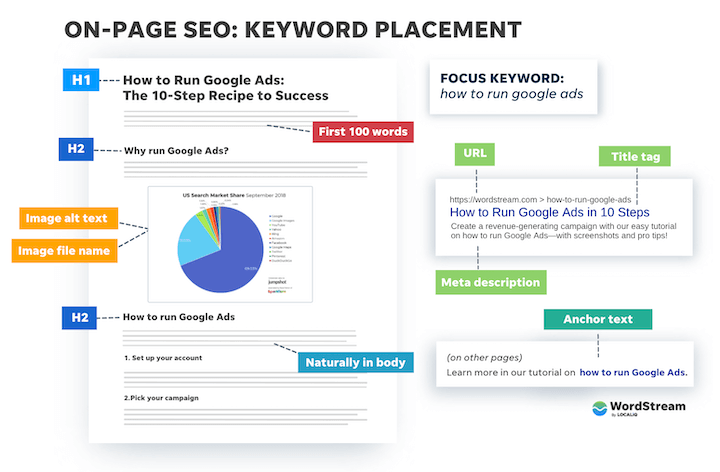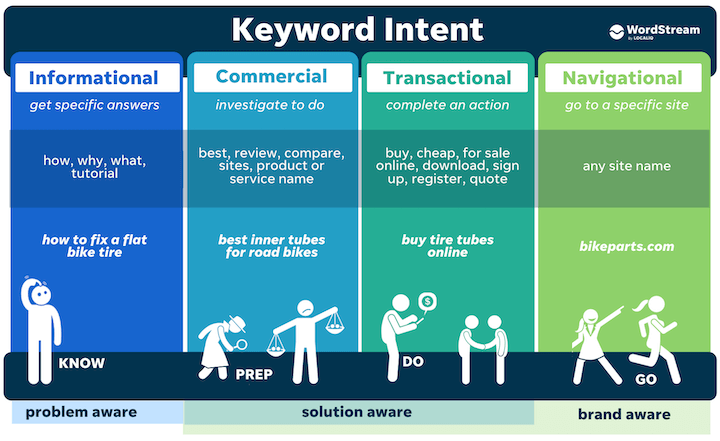Uncover the hidden secrets of Google’s SEO guidelines and how they impact keyword practices. Don’t get penalized, stay informed!

Image courtesy of via DALL-E 3
Table of Contents
Introduction: Understanding Google’s SEO Guidelines
Search Engine Optimization, or SEO for short, is a critical tool that helps websites rank higher on Google’s search results. But how does Google decide which websites appear at the top of the search page? To ensure fairness and relevance, Google has established specific guidelines for website owners to follow. Let’s delve into Google’s SEO Guidelines to uncover how they impact website ranking and why they are essential.
What is SEO?
SEO is like a map that helps people navigate the vast landscape of the internet. It’s all about making your website more visible to users searching for specific information. By optimizing your website according to SEO principles, you increase the chances of your site appearing at the top of search results, attracting more visitors.
Why are Guidelines Important?
Google’s guidelines serve as a rulebook that ensures fairness and quality on the internet. By following these guidelines, website owners contribute to a better online experience for everyone. Without guidelines, some websites might use sneaky tactics to trick their way to the top of search results, making it harder for users to find accurate and trustworthy information.
What are Keywords?
In the world of the internet, keywords play a crucial role in helping people find the information they are looking for. But what exactly are keywords and how do they impact the way websites show up in search results?
Definition of Keywords
Keywords are simply the words or phrases that people type into search engines like Google when they are looking for something specific. For example, if you were searching for information about cute puppies, the keywords you might use could be “cute puppies” or “adorable dogs.” These keywords help search engines understand what you’re looking for and show you the most relevant websites.
How Keywords Work in SEO
When websites create content, they strategically include these keywords to help search engines like Google recognize what their pages are about. By using the right keywords, websites can increase their chances of appearing higher in search results when someone types in those specific terms. This is why choosing the right keywords is essential for improving a website’s visibility and attracting more visitors.
The Right Way to Use Keywords
When it comes to using keywords on your website, it’s important to choose the right ones. This means selecting words or phrases that are not only relevant to your content but are also popular search terms. For example, if you’re writing a blog post about cute puppies, you might want to use keywords like “adorable puppies” or “puppy care tips”. Think about what words people would type into Google when looking for information similar to what you’re offering.

Image courtesy of via Google Images
Using Keywords Naturally
While it’s crucial to include keywords in your content, it’s equally important to use them naturally. This means incorporating them in a way that flows smoothly and makes sense to your readers. Avoid stuffing keywords into your sentences just for the sake of ranking higher in search results. Instead, focus on writing quality content that provides value to your audience. Remember, Google’s goal is to deliver the best and most relevant information to users, so prioritize creating engaging and informative content over keyword stuffing.
What Not to Do: Keyword Stuffing
In the world of SEO, there are certain practices that can actually hurt your website’s ranking instead of helping it. One of these practices is called keyword stuffing. Let’s dive into why keyword stuffing is a big no-no in the eyes of Google!
What is Keyword Stuffing?
Keyword stuffing is when someone tries to manipulate their website’s ranking in search results by overloading their content with the same keyword or key phrases. This can make the content sound unnatural, repetitive, and annoying to read. Imagine if every sentence on a webpage was the same keyword repeated over and over again – that would be pretty frustrating, right?
Consequences of Keyword Stuffing
So, what happens when a website engages in keyword stuffing? Well, Google is smart and can quickly detect when someone is trying to game the system. When they catch a website stuffing keywords, they may penalize the site by lowering its ranking or even removing it from search results altogether. This can be a big blow to a website’s visibility and traffic, essentially making all that effort go to waste.
Using Long-Tail Keywords
When it comes to improving the visibility of your website on search engines like Google, using the right keywords is crucial. In addition to regular keywords, long-tail keywords play a significant role in attracting specific audiences to your site. Let’s explore what long-tail keywords are and why they are valuable for your SEO strategy.

Image courtesy of via Google Images
What are Long-Tail Keywords?
Long-tail keywords are phrases that are more specific and longer than traditional keywords. While traditional keywords are shorter and broader, long-tail keywords are more detailed and targeted. For example, while a traditional keyword might be “shoes,” a long-tail keyword could be “blue running shoes for men.”
Long-tail keywords are advantageous because they help you reach a more specific audience that is actively searching for what you offer. By using long-tail keywords, you can attract visitors who are more likely to convert into customers because they have a clearer idea of what they are looking for.
Benefits of Long-Tail Keywords
Using long-tail keywords in your content can bring several benefits. First and foremost, long-tail keywords have lower competition compared to generic keywords, making it easier for your website to rank higher in search results. This means that when someone searches for a specific long-tail keyword related to your business, your site is more likely to appear at the top of the results.
Furthermore, long-tail keywords help you target users who are further along in the buying process. Since these users have specific needs and intentions, they are more likely to take action, such as making a purchase, signing up for a service, or contacting you for more information. This can lead to higher conversion rates and a more successful online presence for your business.
Monitoring Your Keywords
Tracking how well your keywords are performing is crucial in the world of SEO. By using specialized tools, you can monitor the rankings of your chosen keywords on search engines like Google. These tools provide valuable insights into where your website stands in relation to these keywords and how much traffic they are bringing in.
Adjusting Your Keyword Strategy
If you find that certain keywords are not performing as well as you had hoped, it’s essential to adjust your keyword strategy accordingly. This might involve revisiting your list of keywords and selecting new ones that are more relevant and popular. By constantly evaluating and tweaking your keyword strategy, you can improve your website’s visibility and attract more organic traffic.
Learning from Google’s Updates
Staying updated with Google’s algorithm changes is crucial for anyone looking to improve their website’s ranking on search engines like Google. Google updates its algorithms regularly to ensure that users are provided with the most relevant and high-quality search results. These updates can significantly impact how search engine optimization (SEO) works and can either boost or hinder a website’s visibility online.

Image courtesy of via Google Images
Why Google Updates Matter
Google updates can introduce new ranking factors, change how existing factors are weighted, or penalize websites for violating guidelines. By understanding these updates, website owners and SEO practitioners can adjust their strategies to align with Google’s latest requirements. Staying informed about Google updates enables website owners to stay ahead of the competition and maintain or improve their search engine rankings.
Adapting to Changes
When Google releases an update, it’s essential to analyze its impact on your website’s performance. If your website experiences a drop in rankings following an update, it may be necessary to reassess your keyword usage, content quality, or overall SEO strategy. Adapting to changes may involve modifying your keyword strategy, updating your website content, or seeking professional SEO assistance to navigate the new algorithm requirements effectively.
Conclusion: Ethical SEO Practices
Following ethical SEO practices and adhering to Google’s guidelines is crucial for the long-term success and sustainability of a website. By understanding the importance of ethical SEO, website owners can build trust with their audience, improve their online presence, and ultimately rank higher in search engine results. Let’s recap some key points discussed throughout this article.
Recap of Key Points
In this article, we explored the significance of using keywords effectively to enhance website visibility. We discussed the definition of keywords, how they work in SEO, the right way to use them, the dangers of keyword stuffing, the benefits of long-tail keywords, and the importance of monitoring keyword performance. Furthermore, we emphasized the need to stay updated with Google’s algorithm changes and adapt SEO strategies accordingly.
Staying Ahead with Ethical SEO
It is essential for website owners to prioritize ethical SEO practices by creating high-quality, relevant content for their audience. By focusing on user experience and providing valuable information, sites can attract more visitors and earn the trust of both users and search engines. Remember, following ethical SEO practices not only yields better long-term results but also contributes to a more transparent and fair online ecosystem for everyone.
Want to turn these SEO insights into real results? Seorocket is an all-in-one AI SEO solution that uses the power of AI to analyze your competition and craft high-ranking content.
Seorocket offers a suite of powerful tools, including a Keyword Researcher to find the most profitable keywords, an AI Writer to generate unique and Google-friendly content, and an Automatic Publisher to schedule and publish your content directly to your website. Plus, you’ll get real-time performance tracking so you can see exactly what’s working and make adjustments as needed.
Stop just reading about SEO – take action with Seorocket and skyrocket your search rankings today. Sign up for a free trial and see the difference Seorocket can make for your website!
Frequently Asked Questions (FAQs)
What if I Don’t Use Enough Keywords?
If you don’t use enough keywords in your articles or web content, it might make it harder for search engines like Google to understand what your page is about. Keywords act as clues for search engines to match your content with what people are searching for. So, using the right keywords in the right places is important for your page to show up in search results.
How Often Does Google Change Its Rules?
Google updates its rules and algorithms regularly to improve search results and user experience. These changes can happen quite frequently, sometimes even multiple times a day! To keep up with these updates, it’s a good idea to stay informed by following Google’s official announcements and reputable SEO news sources.
Can Anyone Do SEO?
Yes, anyone can learn and practice SEO! Understanding the basic concepts of SEO and keyword practices is something that anyone can do with a little time and effort. By staying curious and exploring how SEO works, you can improve your website’s visibility and reach online.







